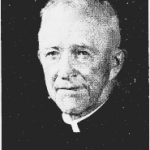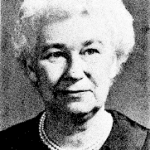Journals and Publications in 1952–53
¶ 1 Leave a comment on paragraph 1 0 In 1953, President John O’Grady appointed Dorothy Dyer to chair a committee to deal with the journal relationship problems plaguing Marriage and Family Living (MFL). Her report, which clarified the management and operations of the journal, was submitted at the 1953 Board meeting. Most notable was the stand on developing relationships with other organizations. The individuals responsible for the journal would continue to make the financial decisions. At no time would space be sold to another organization without express approval of the Board of Directors. Editorships were rotated, and Editors were ex-officio members of the Executive Committee. The Editorial Council would be composed of the Editor; Assistant Editors; the Executive Secretary, who would serve as business manager; and an ex-officio member. The Editor was the committee chair.
¶ 2 Leave a comment on paragraph 2 0 Read the 1953 report – Suggested changes to Marriage and Family Living
¶ 3 Leave a comment on paragraph 3 0 See results of a Journal Questionnaire asking members about Marriage and Family Living
¶ 4 Leave a comment on paragraph 4 0 This policy did not dissipate the bitter feelings but it guided MFL‘s future expansion. Change in the journal from 1951 to 1953 included actions such as discontinuation of the Directory of Organizations section. The Book Notes section was discontinued in the Fall of 1950. In Winter 1951, the Trends and Activities section replaced the News and Notes section. The Pamphlets Received section joined the Books Received section. Special issues continued; for example, Volume 13, Issue 1 featured a special Workshop issue. In 1952, Meyer Nimkoff edited a special research issue honoring Ernest Burgess and his works (Volume 13, Issue 3). Special funds for this issue came from the Burgess Research Fund. From that time on, the number of pages for each volume was increased; for example, the 1951 volume comprised 151 pages, which by 1953 increased to 384. Despite the internal controversies, the expansion of MFL and its research contents facilitated the development of this highly respected, scientific journal, which would be read worldwide in the coming years.
Gallery
- John O’Grady
- Dorothy Dyer
- Ernest Burgess





Comments
0 Comments on the whole Page
Login to leave a comment on the whole Page
0 Comments on paragraph 1
Login to leave a comment on paragraph 1
0 Comments on paragraph 2
Login to leave a comment on paragraph 2
0 Comments on paragraph 3
Login to leave a comment on paragraph 3
0 Comments on paragraph 4
Login to leave a comment on paragraph 4
0 Comments on paragraph 5
Login to leave a comment on paragraph 5
0 Comments on paragraph 6
Login to leave a comment on paragraph 6
0 Comments on paragraph 7
Login to leave a comment on paragraph 7
0 Comments on paragraph 8
Login to leave a comment on paragraph 8